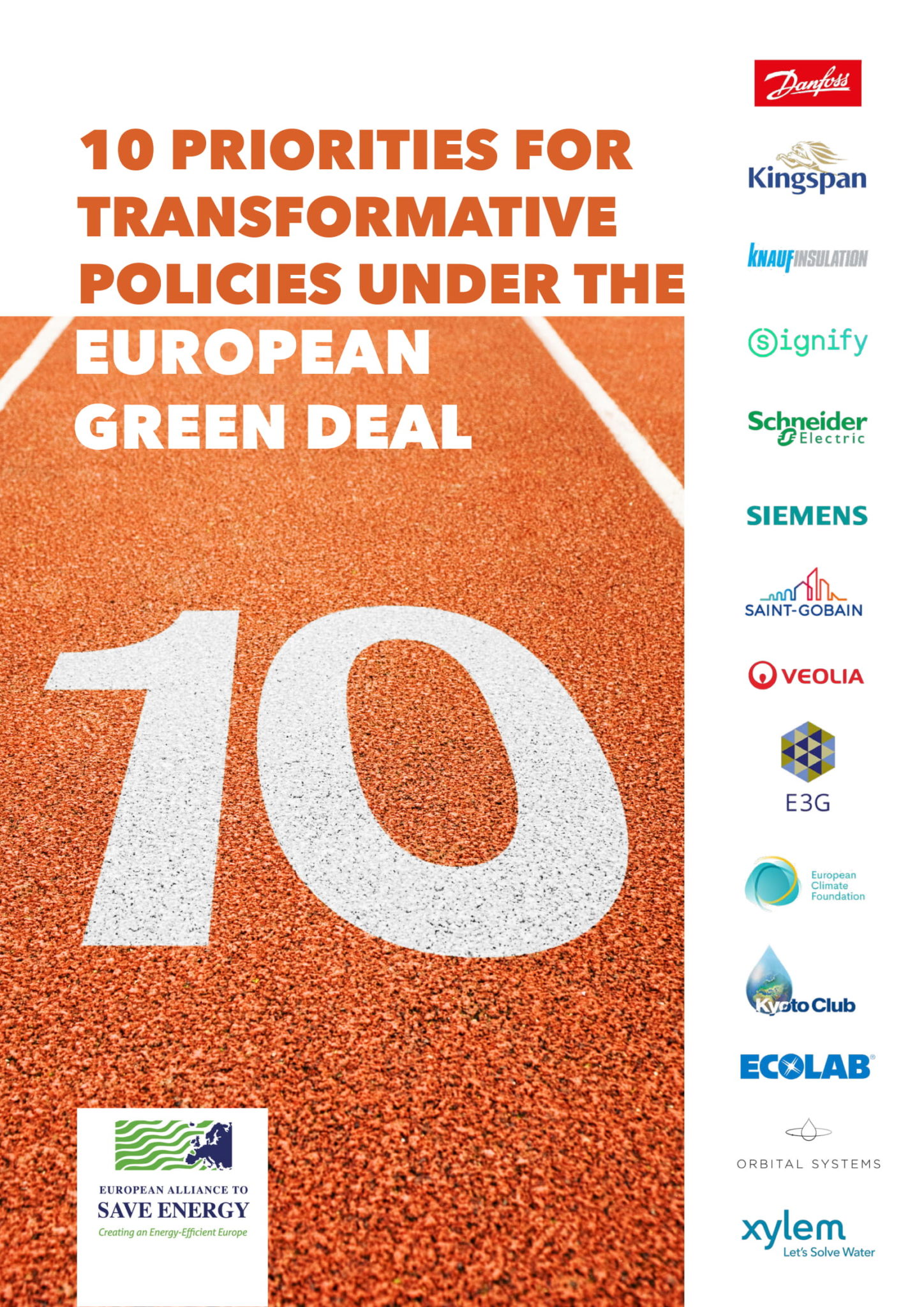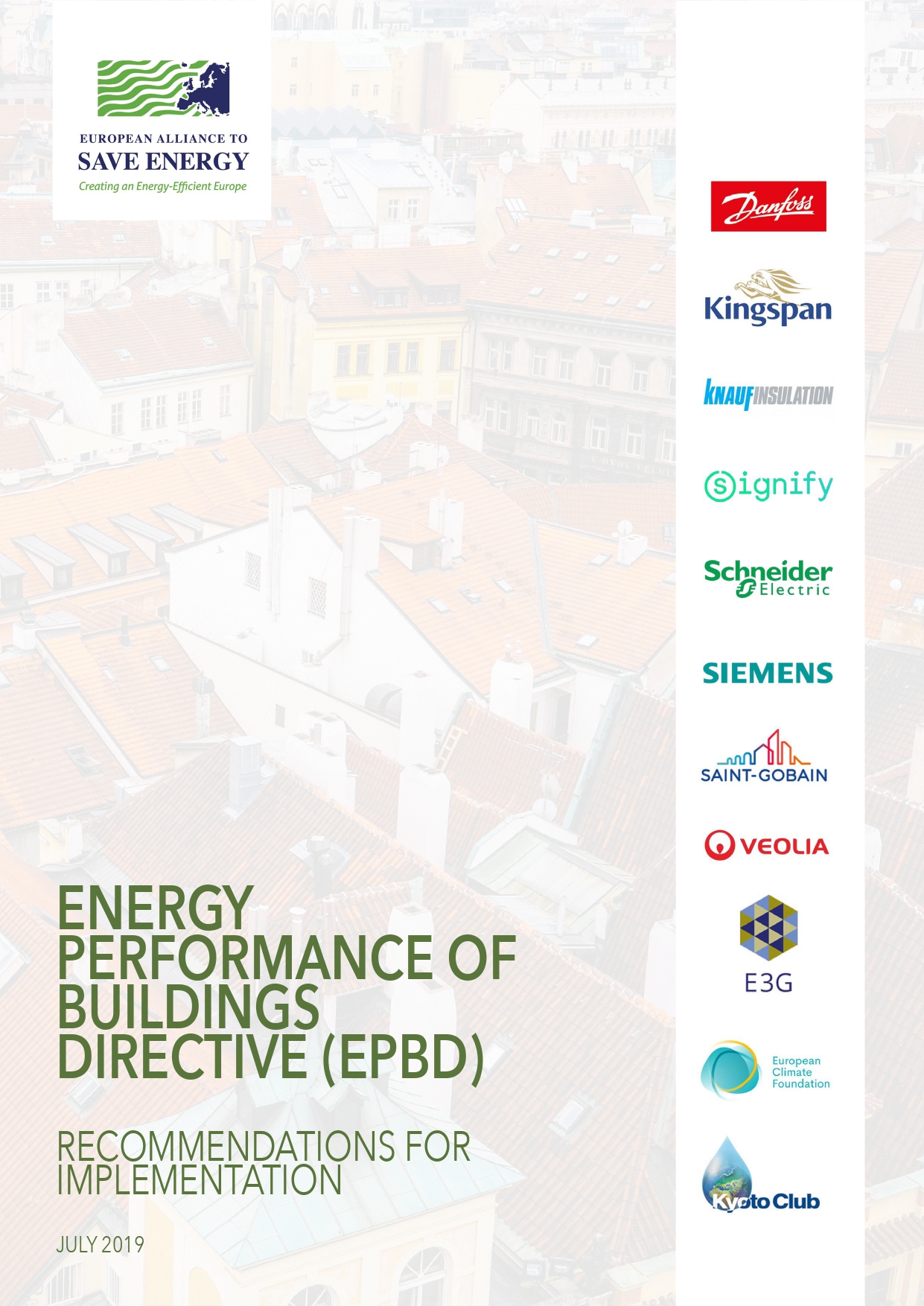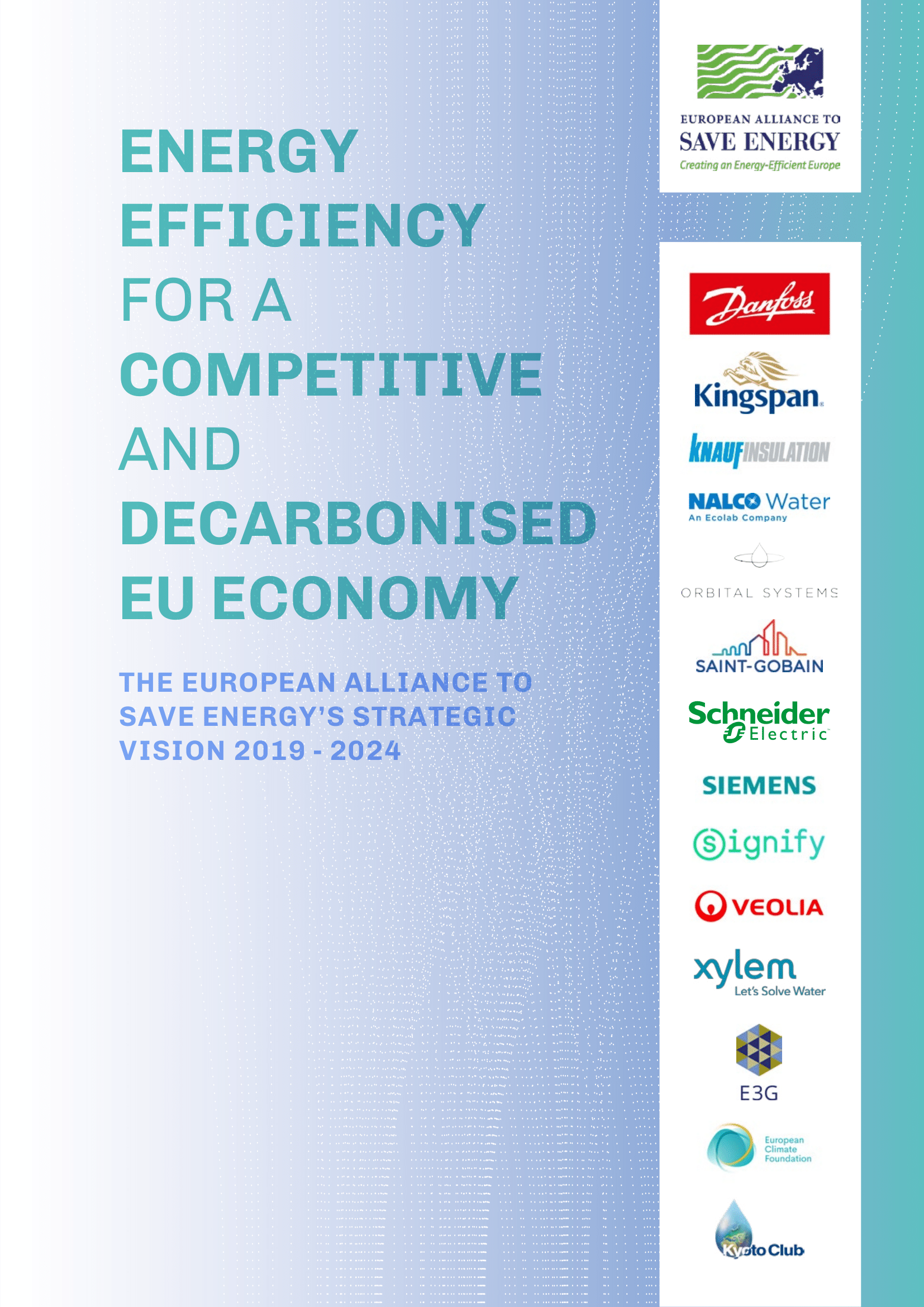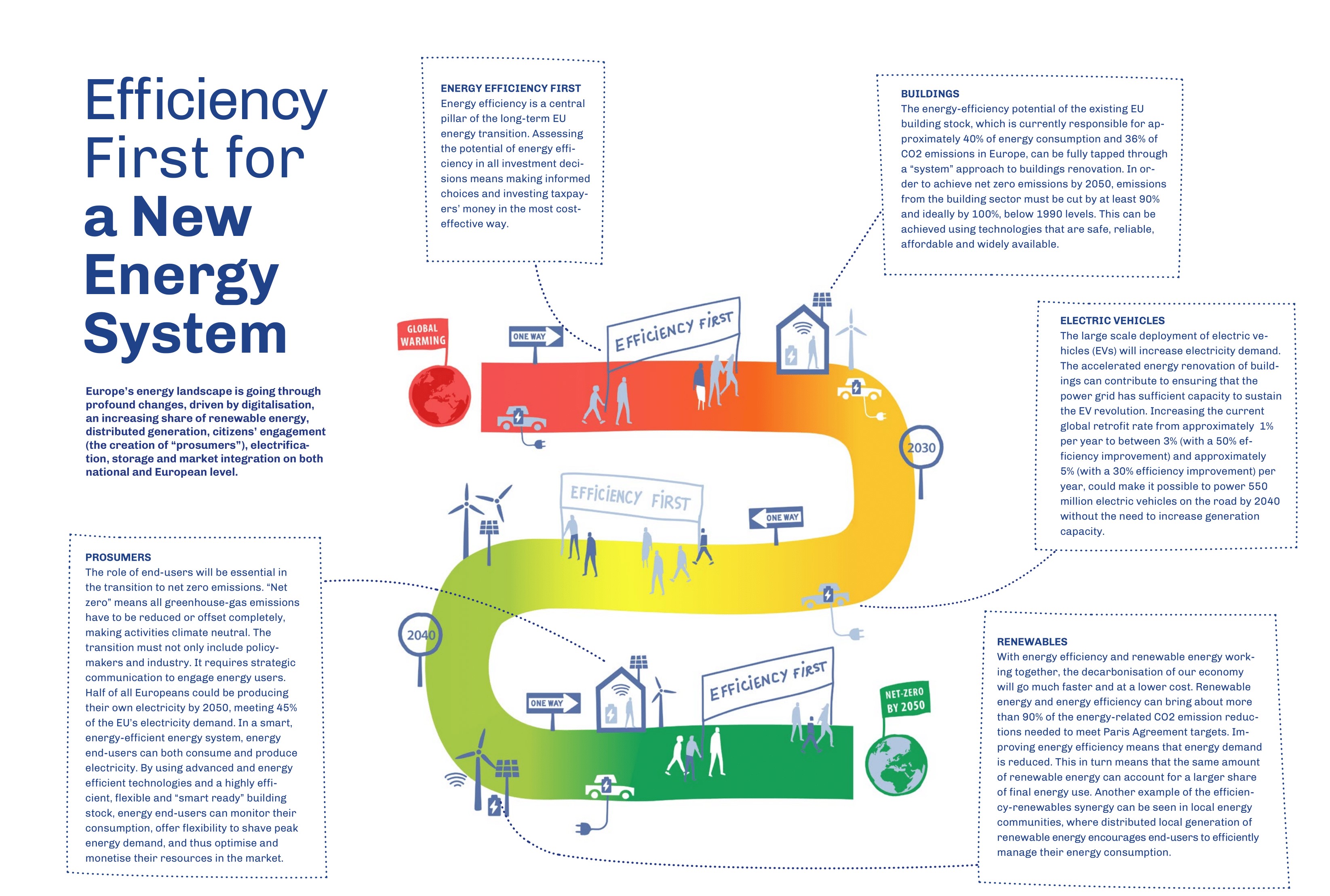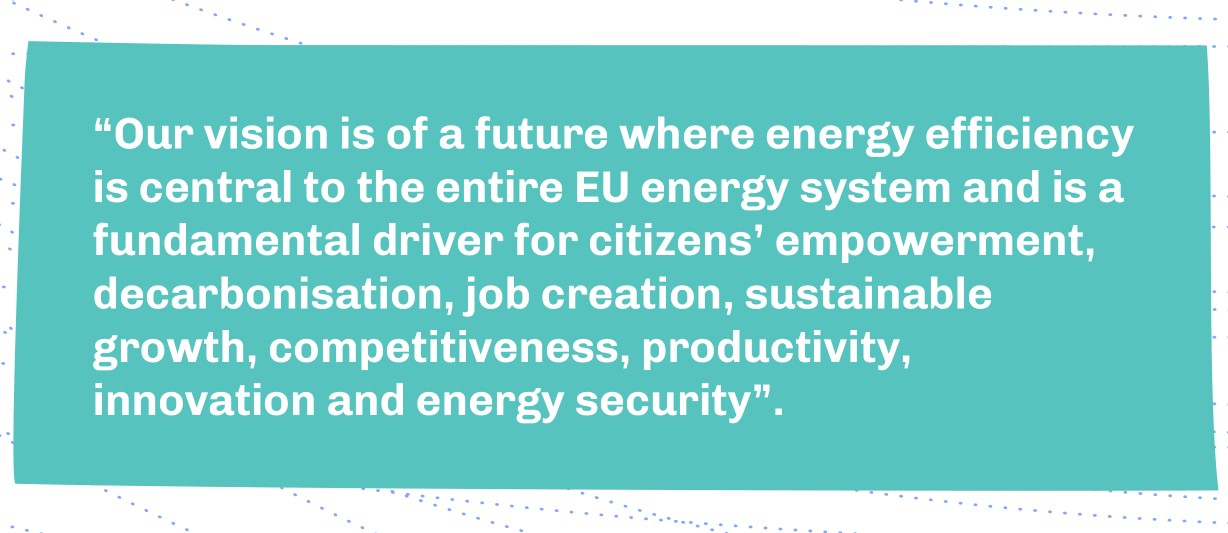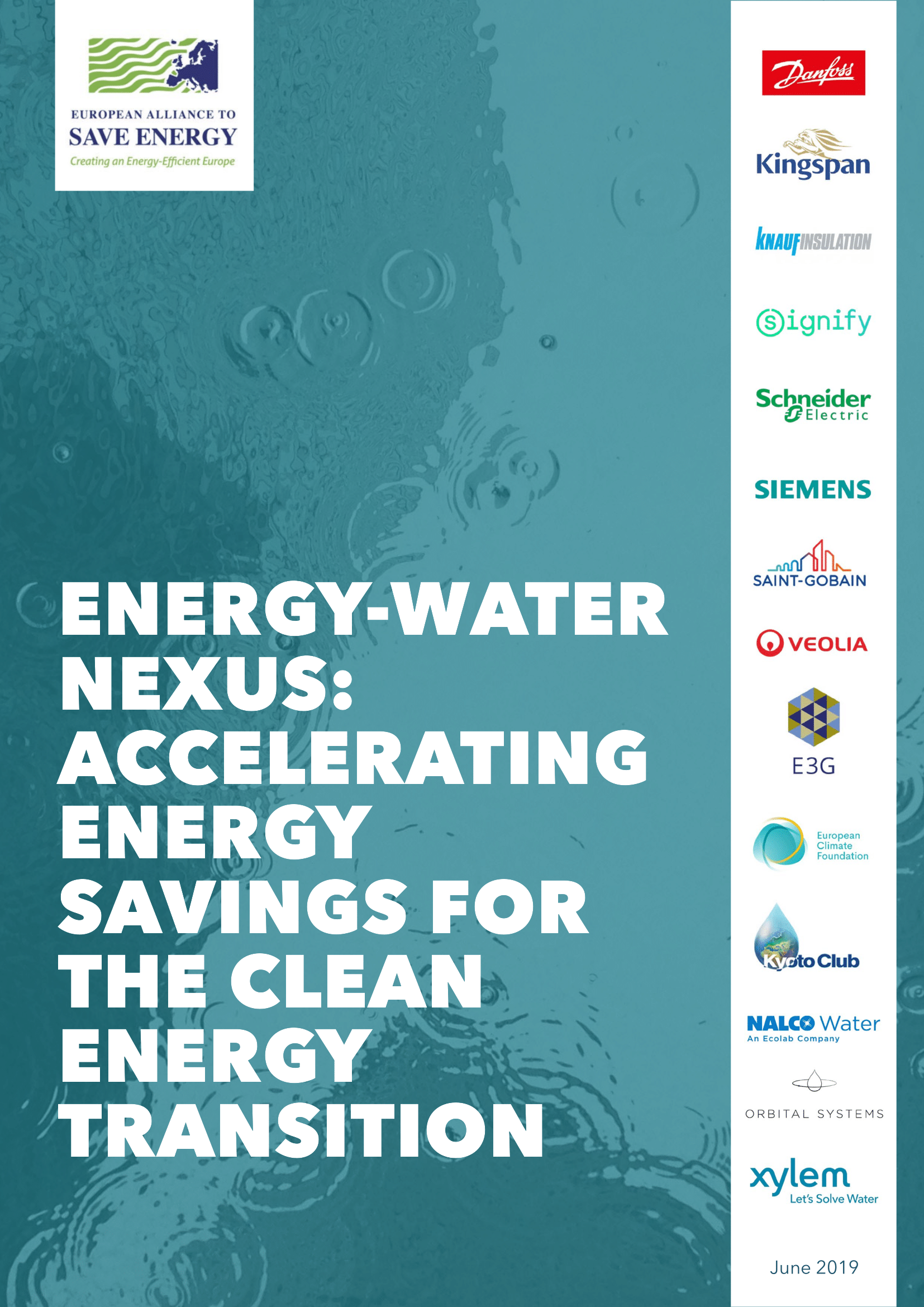EU-ASE contributes to Coalition’s Energy Efficiency package for the European Green Deal
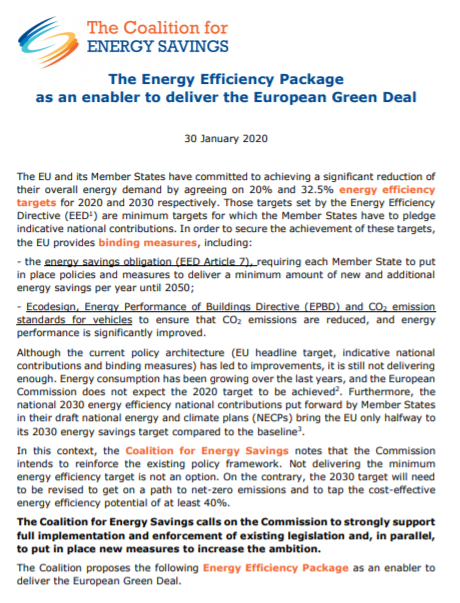
The EU and its Member States have committed to achieving a significant reduction of their overall energy demand by agreeing on 20% and 32.5% energy efficiency targets for 2020 and 2030 respectively. Those targets set by the Energy Efficiency Directive (EED) are minimum targets for which the Member States have to pledge indicative national contributions. In order to secure the achievement of these targets, the EU provides binding measures, including:
- the energy savings obligation (EED Article 7), requiring each Member State to put in place policies and measures to deliver a minimum amount of new and additional energy savings per year until 2050;
- Ecodesign, Energy Performance of Buildings Directive (EPBD) and CO2 emission standards for vehicles to ensure that CO2 emissions are reduced, and energy performance is significantly improved.
Although the current policy architecture (EU headline target, indicative national contributions and binding measures) has led to improvements, it is still not delivering enough. Energy consumption has been growing over the last years, and the European Commission does not expect the 2020 target to be achieved. Furthermore, the national 2030 energy efficiency national contributions put forward by Member States in their draft national energy and climate plans (NECPs) bring the EU only halfway to its 2030 energy savings target compared to the baseline.
In this context, the Coalition for Energy Savings notes that the Commission intends to reinforce the existing policy framework. Not delivering the minimum energy efficiency target is not an option. On the contrary, the 2030 target will need
to be revised to get on a path to net-zero emissions and to tap the cost-effective energy efficiency potential of at least 40%.
The Coalition for Energy Savings calls on the Commission to strongly support full implementation and enforcement of existing legislation and, in parallel, to put in place new measures to increase the ambition.
The Coalition proposes the following Energy Efficiency Package as an enabler to deliver the European Green Deal.

